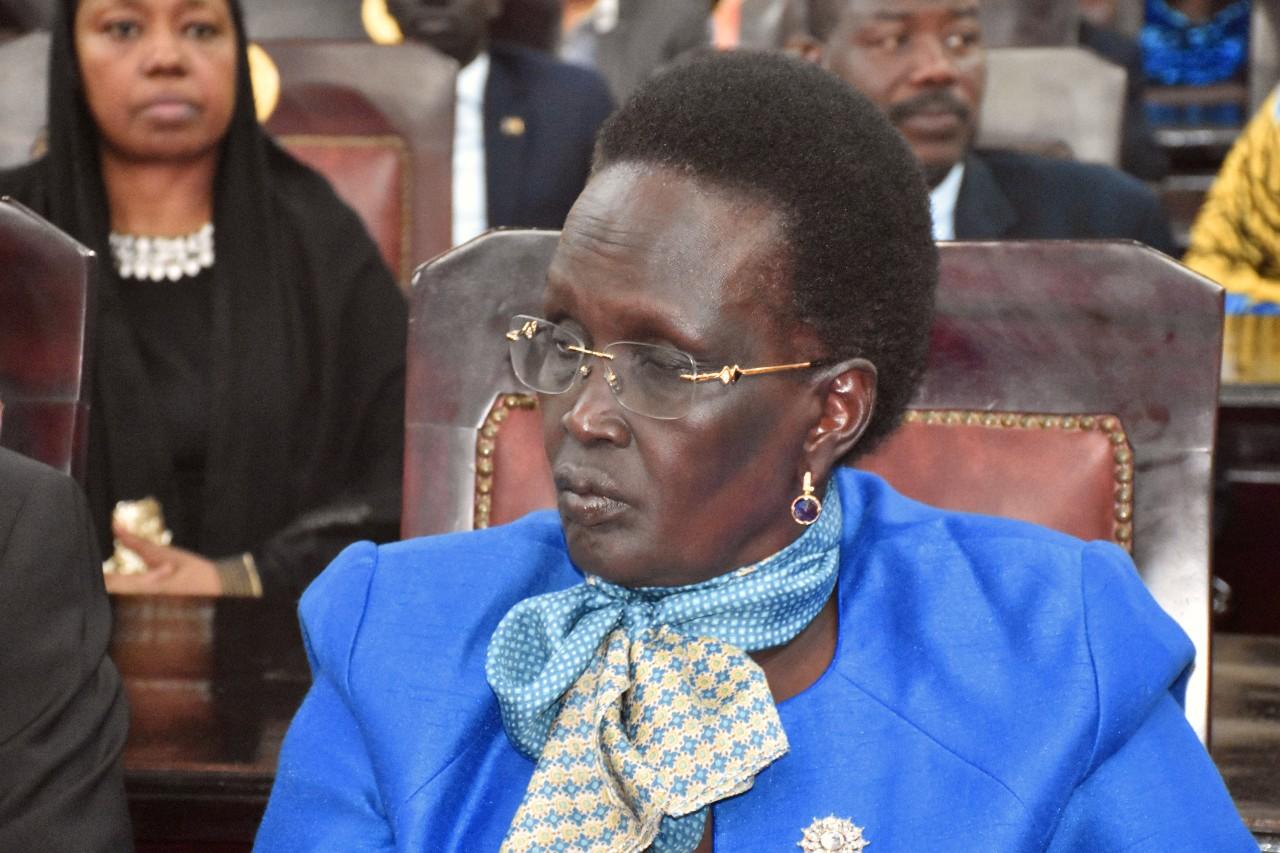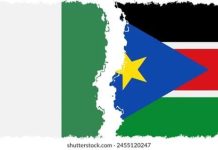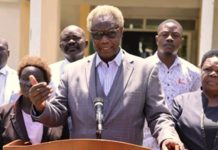Africa-Press – South-Sudan. Providing meritocratic recruitment pathways is a critical ingredient for unlocking women’s leadership in the public sector. What is more, when talented women get the chance to play key roles in governance. They help fill capacity gaps that limit government effectiveness. Representation is a meaningful end in itself, but in the public sector context, women’s representation matters.
Johnson Sirleaf, the former Liberian President’s authority and legitimacy were grounded in her knowledge of treasury, finance, and the power of words spoken the truth. This was perceived by many in Liberia as the pursuit of moral ends in a violent and increasingly war-torn country of moral means.
But the true scope of Johnson Sirleaf’s capacities was not revealed until she became president. Fortunately, for those of us seeking live examples of moral leadership.
In South Sudan, the most important part of Rebecca Nyandeng’s leadership is what I am so much interested in. Throughout her career, she has demonstrated a passionate commitment to hard work, integrity, and good governance, advocating for the rights of women, youth, and equality.
She is also trying to provide a better future for her citizens. Mama Rebecca Nyandeng taught me a lot about the roles she played during our struggle; she is a mother with uncommon drive, a woman of integrity, and she has enough open-mindedness.
You will also see her capacity for complexity and tolerance for ambiguity as essential traits to cultivate if you wish to lead a principled and active life.
Vice President Nyandeng has always solicited funds from our development partners. She secured $11.2 million from the African Development Bank, which was recently launched. Youth enterprise and business are all underway.
She also secured $50 million from USAID for 5 years for youth and women’s economic activities, especially in agricultural activities, which will be implemented by the Ministry of Agriculture through FAO.
In her cluster, she also secured $70 million from the World Bank for youth and women’s economic empowerment. $40 million will be used for youth entrepreneurship and $30 million for women’s empowerment.
This money includes the building of the Ministry of Gender, Child and Social Welfare. She also secured funds for the building of national archives from the Norwegian government. The land of the Ministry is just next to Freedom Hall.
She secured funds from the International Olympic Committee to construct a multi-purpose stadium and the headquarters of the South Sudan National Olympic Committee. SPLM and its alliance partners, while also delivering on the promise of a more nimble government.
South Sudan is now just one of 11 countries in the world where women’s in leadership in the country makes the same proportion as they do in society. There are nearly 200 countries in the world.
It is absurd that we need to celebrate that our leaders reflect the diversity of our society. But this is where we are, and we do need to celebrate this moment.
The SPLM has long pushed for equality in its senior positions. This is all the more laudable in a society where violence towards women is endemic, and where other political parties are less interested in inequality. But take a look at the SPLM party.
These parties’ arguments, reflected in too many other countries, boil down to merit: leaders should be chosen on merit. This is a handy trick to create the illusion that we live in a system where everyone has equal opportunities.
But, to get to the top, a woman has to make it through a system that has been refined, over centuries, to exclude anyone that does not conform to a narrow definition of leadership.
While our norms and cultures make it clear that girls do not play with superhero toys or certain types of Lego that help to develop “masculine” skill sets.
Our schools reward the boys who reflect a specific version of what it means to be a man. By their teenage years, girls are faced with the likelihood of being married at an earlier age or abused. Then they enter a workplace where their managers are probably men, who promote people like them. If people don’t conform to this “boys club” they miss out on opportunities to learn, promotion and further development.
We have exceptional leaders in the country and we need a diversity of thoughts. Having the same small club of men means the same ideas will keep being punted, the same mistakes will keep being made.
Let us show our future leaders that everyone in our beloved country is entitled to lead the country. Mothers are the most powerful assets when we come into decision-making; women are caregivers, and caretakers if they wish to improve this country. Let our mothers continue to lead.
Accordingly, the meaningful participation of women in national, local, and community leadership roles has become an important focus of global development policy. Still, some may ask why it matters if women become political leaders, elected policymakers, or civil society activists.
Why does the world need more women involved in all aspects of the political process? Women’s political participation results in tangible gains for democracy, including greater responsiveness to citizen needs, increased cooperation across party and ethnic lines, and a more sustainable future.
Women’s participation in politics helps advance gender equality and affects both the range of policy issues that get considered and the types of solutions that are proposed.
Most of the researchers indicate that whether a legislator is male or female has a distinct impact on their policy priorities. There is also strong evidence that as more women are elected to office, there is a corollary increase in policymaking that emphasises quality of life and reflects the priorities of families, women.
Women demonstrate political leadership by working across party lines through parliamentary women’s caucuses even in the most politically combative environments and by championing issues of gender equality, such as the elimination of gender-based violence, parental leave, and childcare, pensions, gender-equality laws,
Women leaders are better placed to draw on informal networks to mobilise rapid responses and community support. They are used to finding alternative resources and building ingenious partnerships to solve problems. So, with the greater numbers of women at the forefront of policy decisions, these skills are coming to the fore.
In 2004, Mama Rebecca Nyandeng was elected into the SPLM leadership council not because she was the wife to the chairman of the party but because of her strong will.
By investing in two critical, cross-cutting constituencies women and the civil service we have the opportunity to accelerate, and secure, South Sudan’s progress.
For More News And Analysis About South-Sudan Follow Africa-Press






